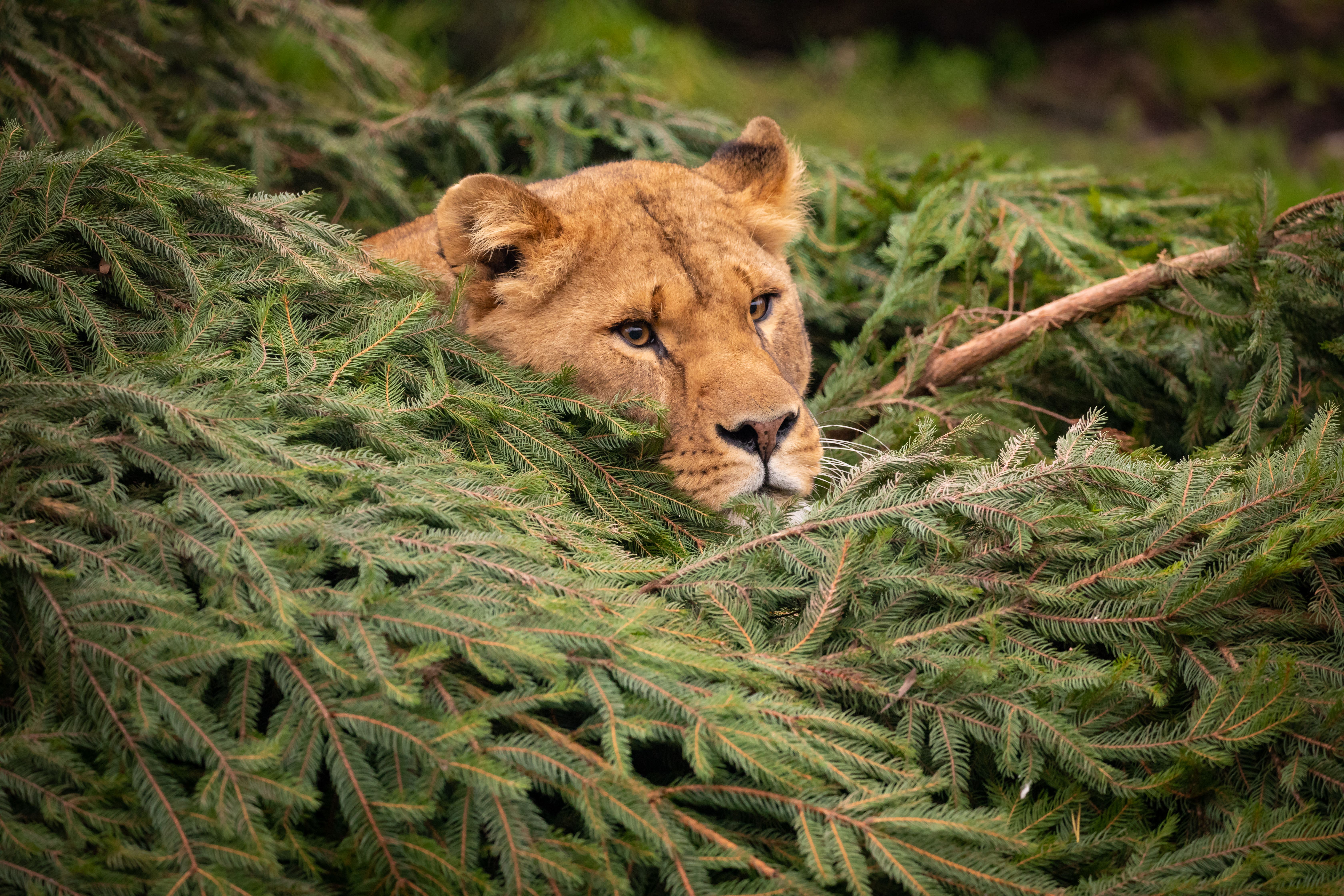Knowsley Safari upcycles old Christmas trees by giving them to their animals
As part of the animal’s new year enrichment programme, the Safari’s animals receive old Christmas trees to eat or play with.

Your support helps us to tell the story
From reproductive rights to climate change to Big Tech, The Independent is on the ground when the story is developing. Whether it's investigating the financials of Elon Musk's pro-Trump PAC or producing our latest documentary, 'The A Word', which shines a light on the American women fighting for reproductive rights, we know how important it is to parse out the facts from the messaging.
At such a critical moment in US history, we need reporters on the ground. Your donation allows us to keep sending journalists to speak to both sides of the story.
The Independent is trusted by Americans across the entire political spectrum. And unlike many other quality news outlets, we choose not to lock Americans out of our reporting and analysis with paywalls. We believe quality journalism should be available to everyone, paid for by those who can afford it.
Your support makes all the difference.Knowsley Safari have come up with a solution for people unsure what to do with their old Christmas trees – giving them to their animals.
“Anyone who’s got any Christmas tree that has obviously not had any decorations sprayed on or anything that could contaminate them, we’ll take here,” Lindsey Banks, acting head of section of ungulates – hoofed mammals – at the safari, told the PA news agency.
Ms Banks said the animals she’s in charge of overseeing love the trees.
“The European bison and the moose would naturally feed on woody plants like pine trees in their native habitat,” she said. “It offers quite a nice natural winter feed alongside their normal diet.
“But also for the bison, it’s something different and novel that they don’t get all the time. It’s something that smells and looks a bit different. So they like to investigate it, they like to sniff it, and the males will dress their horns as well.
“They’ll lift up the tree, and they’ll throw it around showing the other bison that they’re quite a strong male and quite an impressive animal. They’re trying to show who’s top dog so to speak.”
The safari have been upcycling old Christmas trees for several years now and Ms Banks said the scheme was “an excellent opportunity to reuse something that otherwise would go to waste.”
“As part of our daily care of these animals, we’re always thinking about how we’re presenting their feed,” Ms Banks said. “The different items we can put in the enclosure to make them problem solve. As part of our husbandry routine for them, we try as much as we can to change the environment so they’ve always got something different to engage in.”
Several other animals have also been seen interacting with the trees including the safari’s lions.
“It’s something that the carnivore team offer out as well because, again, it’s something different in their environment, something for them to investigate and smell,” Ms Banks said.
“Because they’re obviously in a captive environment, you want to try and put back as much into their environment of choice and control and new things. Because naturally in the wild they’d come across lots of different things all the time. Their environment changes a lot.
“For us, anywhere where we can offer something that will get them engaging in their environment, investigating something, using to add enrichment to hide food, and encouraging them to spend more time engaged in different behaviours, always has a positive benefit in terms of their welfare.”
Knowsley Safari is based in the North West of England and is home to over 700 animals.